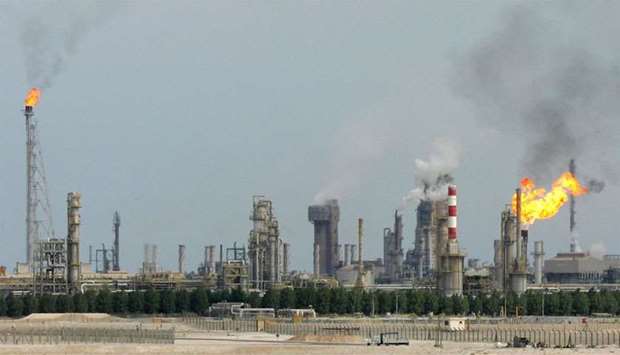Qatar could consider adopting a fiscal rule and also base its budget on realistic oil price assumptions than taking a conservative approach, according to the International Monetary Fund (IMF).
"Given the volatile nature of resource revenues, Qatar would benefit from a framework that includes a procedural fiscal rule, rather than a permanent strict numerical target,” the IMF said in its Article IV consultation with Qatar.
Moving towards a medium-term fiscal framework that decouples government expenditures from hydrocarbon revenues would reduce the destabilising impact of oil price volatility on the economy, it said.
"A procedural rule in a volatile environment thus argues for allowing the Ministry of Finance (MoF) the flexibility to change its quantitative fiscal targets within a principle-based framework," the Bretton Woods institutions said, adding this indeed suggests a trade-off between a rigid fiscal rule with high risks of becoming obsolete and a flexible yet less credible rule.
In that respect, having explicit revision clauses in place (targets to be reassessed every four years, for example) will help avoid undermining the credibility of the framework with too frequent changes, according to the IMF.
A procedural fiscal rule would include principles for fiscal policymaking, requirement for the government to set a target for one or more fiscal indicators, the content of the fiscal strategy statement in which those targets are set, the arrangements for reporting performance against those targets; and an escape clause to deal with exceptional circumstances, which prevent the government from meeting its fiscal objectives.
Suggesting a medium term budgetary framework (MTBF) for Qatar, the IMF said a credible annual budget is critical to the designing and implementation of a MTBF.
Stressing that in Qatar, this area requires further progress; the IMF said the annual budget is based on a conservative oil price assumption, “resulting in budget revenues much lower than actual oil prices.”
In Qatar, like in any resource-rich country, using realistic oil price assumptions that are based on explicit rules in the preparation of the budget is key to avoiding consistent deviations of actual oil prices from budget and the potential ad-hoc elements in spending decisions that they could cause, the IMF said.
The report said the medium-term macroeconomic projections need to be anchored in the government’s multi-year projections of revenue and expenditure and a macro-fiscal unit has been established in Qatar that is charged with this responsibility.
The MoF needs to enhance capacity to further improve the formulation of medium-term macroeconomic forecasts. Nevertheless, in Qatar as in any other resource-rich country with resource price and production uncertainty, medium-to-long-term resource revenue forecasts are clearly a challenge, it said.
Accelerating progress towards turning the MTBF into a performance-based medium-term expenditure framework would further improve allocative efficiency, the IMF said.
Finding that fiscal consolidation is envisaged to continue, albeit at a slower rate; the IMF said in 2019, expenditure restraint and lagged revenue impact of higher oil prices would result in further improvement of fiscal position to about 3% from 2.3% in 2018.
Over the medium term, Qatar's fiscal position would be in moderate surplus due to broadly stable hydrocarbon prices and sustained expenditure control.


